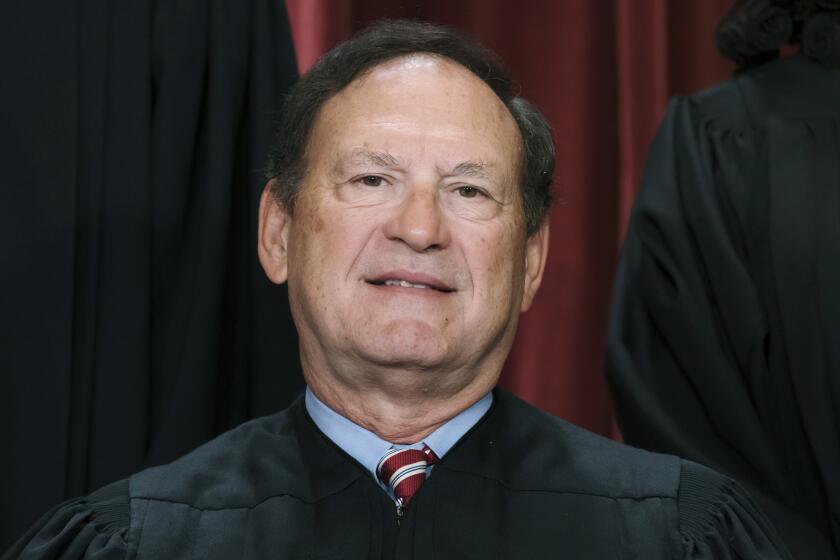Veto of Dam May End Water Diversion Projects in West
Supporters and opponents agreed Friday that the veto of the Two Forks Dam project in Colorado could spell the end of huge projects aimed at diverting water in the water-scarce West.
But both sides also agreed that the decision by the Environmental Protection Agency to kill the Denver-area project would not spell the end of the fight over a project that pits developers against conservationists.
The EPA confirmed Friday that it would not approve construction of the Two Forks Dam project, the largest non-federal water project in the West.
The agency’s assistant administrator for water, LaJuana S. Wilcher, said she would uphold the recommendation of the EPA’s Denver office to bar construction of the 615-foot dam just downstream of the confluence of the South Platte River and its North Fork.
“The applicants made a good-faith effort to downscale the project size and compensate for the loss of wetlands and aquatic resources,” Wilcher said.
“However, the smaller project would still flood 24 miles of freely flowing, scenic stream and almost 11 miles of gold medal trout fishery. . . . It would inundate an area of unquestionable natural beauty that provides a diversity of fishing and recreational opportunities and a rich aquatic habitat close to the Denver metropolitan area.”
The city of Denver wants the project to increase water supplies for its suburbs. The project calls for building the dam to creating a reservoir on the South Platte River, southwest of Denver.
“This decision affects not just Denver, but it may be the end of all big water projects,” said William H. Van Schooneveld, chairman of the group behind the project. “If EPA can veto this, there really isn’t any project that anybody can develop that can pass the EPA.”
Hope Babcock, general counsel for the National Audubon Society, agreed on the veto’s significance.
“It says once again that the era of building these enormous projects is over,” she said, adding that the agency has previously used its veto powers under the Clean Water Act.
Not all of those vetoes are final, however, and a federal court in Virginia recently reversed a veto. “There are a lot of grounds for appeal,” Van Schooneveld said.
“The Denver Water Board has fought like crazy for this project over the years,” Babcock said. “I would be amazed--they have a lot of high-priced lawyers--if they didn’t go to court on this.”
Big dams have made possible the growth of big cities and farms in the West. Critics say that too much water has been diverted, threatening the balance of nature.
The Army Corps of Engineers in March, 1989, approved a permit to build the dam, and former Ronald Reagan Administration officials had indicated support for the project.
Babcock said the veto decision “is extremely significant, in particular, because of what it says about Reilly and his EPA.” Reilly was appointed by President Bush.
More to Read
Start your day right
Sign up for Essential California for news, features and recommendations from the L.A. Times and beyond in your inbox six days a week.
You may occasionally receive promotional content from the Los Angeles Times.






